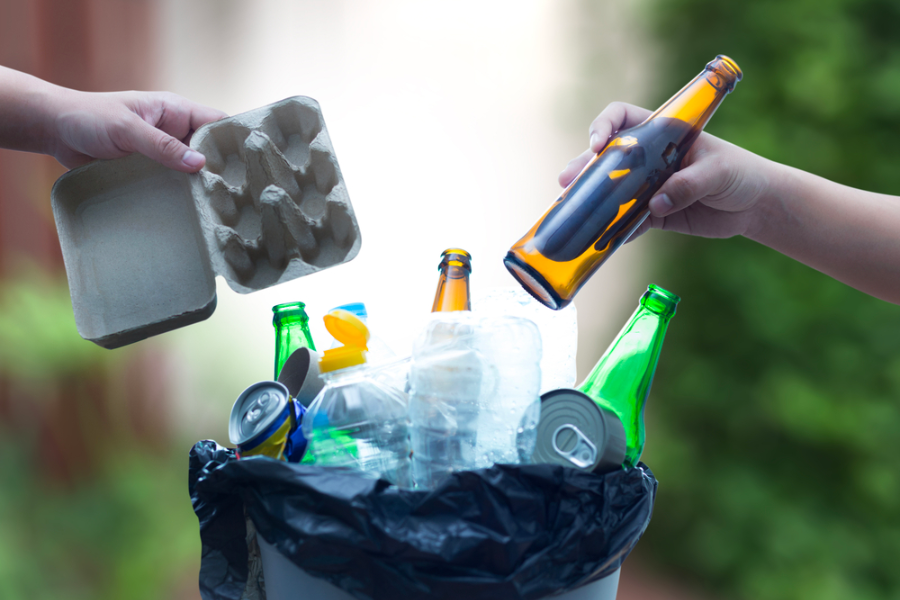The New EU Law That’s Looking to Stamp out Greenwashing
April 11, 2023
Today's guest blog is authored by Tom Howarth of GreenBiz Group. The original post can be read here.
Consumers today face a barrage of eco-friendly messaging from the corporate world as it hopes to cash in on increasing concern for the environment. At the same time, an absence of common rules for companies making voluntary green claims has left the door open to greenwashing, making it increasingly difficult to gauge the fact from fiction when it comes to sustainable business practice. This is not just a problem for the eco-conscious shopper, who must now sift through reams of "sustainable" products to find one with bona fide green credentials — it is a problem for businesses, too.
Companies making a genuine effort to reduce their environmental impacts, often at significant cost, are having to compete against others making the same claims but without putting in the work. This effectively negates the economic rewards for caring about the planet, particularly in industries with complex supply chains, where clearly communicating environmental impacts can be tricky.
Conversely, businesses caught practicing greenwashing, or even those who are perceived to be, can expect drops in customer satisfaction and serious financial repercussions.
At the extreme end, the case of German car manufacturer Volkswagen springs to mind, after it saw profits tumble 20 percent following revelations in 2015 that the company had installed software to cheat U.S. emissions tests. Whilst sympathy for a company purposefully trying to dupe regulators should be limited, the case highlights the toxicity of greenwashing for all parties involved; businesses, consumers and, of course, the planet.
The Green Claims Directive, proposed by the European Commission in late March, seeks to address this issue by establishing "common criteria against greenwashing and misleading environmental claims." The hope is that by homogenizing the standards for claims made by businesses across the trading bloc, consumers will have "more clarity, stronger reassurance that when something is sold as green, it actually is green, and better quality information to choose environment-friendly products and services." Businesses will also benefit, "as those that make a genuine effort to improve the environmental sustainability of their products will be more easily recognized and rewarded by consumers … rather than face unfair competition."
The need for the legislation is clear. An assessment of environmental claims carried out by the Commission in 2020 across a broad range of industries found that 53.3 percent "provided vague, misleading or unfounded information" about products’ environmental characteristics, while 40 percent had no supporting evidence at all.
What’s more, there are currently 230 sustainability labels and 100 green energy labels in use in EU markets, each with different criteria and levels of transparency. Even if some labeling schemes provide genuine sustainability credentials, it's unlikely the average person on the street would have any idea which ones they are.
Virginijus Sinkevičius, European commissioner for Environment, Oceans and Fisheries, put it well: "We want to help consumers become more confident about their choices and ensure that those companies that make genuine efforts to reduce their impacts on nature, resource use, climate emissions or pollution are rewarded."
How will the new rules work?
The objective of the new proposal is simple — prevent greenwashing by enforcing clear and harmonized rules and labels. Specifically, the measures will target explicit claims, examples of which might include: "T-shirt made of recycled plastic bottles," "CO2 compensated delivery," "packaging made of 30 percent recycled plastic" or "ocean friendly sunscreen."
Under the new rules, companies will need to have any such claims independently verified and proven with scientific evidence. Possible trade-offs will also need to be highlighted, to give a full and accurate picture of a product’s impacts.
Environmental labeling schemes, in the form of trust and quality marks that certify that a product or business meets the requirements set up by the scheme, are another target of the legislation. Such schemes can lack transparency and are not always credible; in response, the new proposal suggests banning the proliferation of new public labeling schemes unless they are developed at EU level, preventing individual Member States from developing their own. Private labeling schemes, on the other hand, can be approved at Member State level, but will need to demonstrate that they provide "added value" in terms of environmental ambition before going through the approval process. Labeling schemes from third countries (those that are not members of the EU, including the U.S.) will also need to be submitted for approval before products brandishing them are admitted into the EU market.
An assessment of environmental claims carried out by the European Commission in 2020 across a broad range of industries found that 53.3% 'provided vague, misleading or unfounded information' about products’ environmental characteristics ...
The penalties for non-compliance will not be cheap, either. Rogue traders caught making unfounded claims can expect fines of at least 4 percent of total annual revenue within any region in which they have been in breach of the rules — the same level as the penalties to be doled out under the EU’s recent law on deforestation-free products, set to be implemented next year.
Does the proposal go far enough?
Despite a warm reception from businesses and trade organizations, including the International Chamber of Commerce, the new proposal has drawn some criticism from environmental groups that claim months of lobbying by companies have left the rules "substantially watered down."
In particular, the new laws will not cover phrases such as "carbon neutrality," a favorite term used by companies looking to give their image a green makeover, according to the watchdog and think tank Carbon Market Watch. Others have argued that because the bill does not outline a single methodology to substantiate green claims, businesses will simply "cherry-pick" the ones that suit them best.
"Sadly, without harmonized methodologies at the EU level, the new Directive will provide little clarity to consumers and business, and will only complicate the job of market surveillance authorities," said Margaux Le Gallou, program manager for environmental information and assessment at the Environmental Coalition on Standards.
How successful the Green Claims Directive will be at stamping out greenwashing in the European Union market remains to be seen. Indeed, the bill is still subject to the approval of the European Parliament and Council before it becomes law, which will take at least a few months. However, if you consider this proposal in its broader context — as part of a package of recent legislation being pushed by the EU — then it’s clear that the world’s third largest economy is becoming an increasingly hostile environment for unsustainable businesses. Where the EU is succeeding is in making rules that must be followed by any company, operating anywhere in the world that wishes to sell to the half a billion or so customers who reside within its borders.
Disclaimer: Guest blogs represent the opinion of the writers and may not reflect the policy or position of the Northeast Recycling Council, Inc.
Share Post





